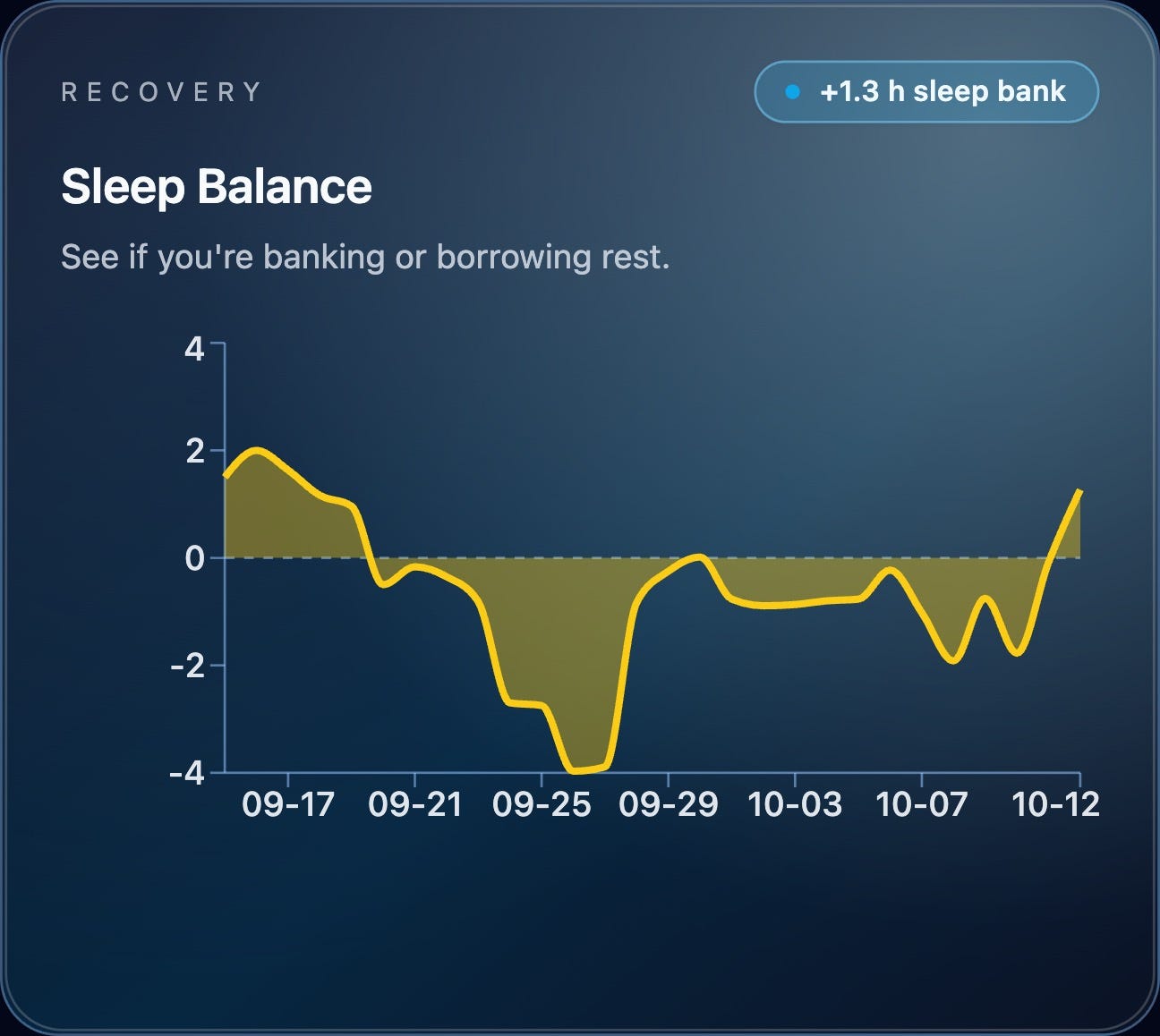33. Banked
It was a solid training week, thirteen hours of running and Zwift, but halfway through I hit a wall. Not fatigue exactly, more that dull, flat feeling that tells you the system’s running at a deficit. So I did something I rarely do: I stopped. One full day off. Slept nine hours. And, predictably, the next day everything clicked again.
It was another week of travel and work peaks, so the balance act was real. Training got shuffled, sessions shortened or swapped, but I’ve learned that consistency doesn’t mean rigidity. It’s the discipline of showing up and knowing when not to. Between flights, meetings, and late nights, I started to pay attention not just to mileage or watts, but to sleep. Specifically, how to measure and manage it with the same precision I track aerobic load.
I built a simple model: every night’s surplus or deficit against a 7.5-hour target updates a “sleep bank.” Positive balances decay quickly (multiplied by 0.6 each day) and cap at +1.5 hours, because you can’t truly get ahead on rest. But deficits linger, decaying slowly (0.9), a quiet reminder that the body doesn’t forget missed recovery. It’s rough math, but it mirrors how it feels: a single good night helps, yet it doesn’t erase a week of short ones.
The science backs this up. Sleep “banking” works, but only as a short-term buffer. Studies show that adding an extra hour or two of sleep for several nights before a period of sleep loss protects performance, focus, and mood. Military and athlete data point the same way: you can preload recovery if you know a crunch is coming. The effect isn’t magic; it’s preparedness. You’re not buying sleep for later, you’re reducing the debt you’re about to incur.
So this week wasn’t about pushing harder. It was about paying attention to the quiet metrics that determine whether the hard work sticks. The training load was good, but the lesson was better: you can’t always train more, but you can recover smarter.
Carve Out
This week I listened to Google: The AI Company by Acquired. The episode charts how Google, the company that invented the Transformer, now faces its own innovator’s dilemma, balancing stability with reinvention. A reminder that in both tech and endurance training, the challenge isn’t building something great once, it’s having the courage to disrupt yourself before someone, or something, else does.


